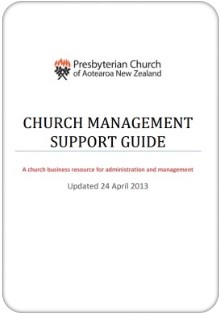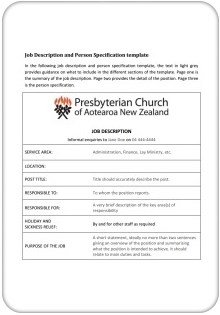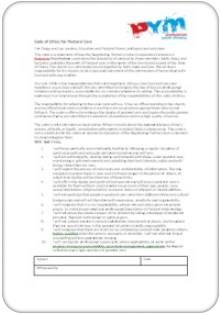- We believe it is important to follow best practice guidelines in the way we employ our youth worker.
- We promise to have clear procedures for recruiting and employing our youth worker, and to provide supportive management structures.
What is the youth worker’s responsibility?
It may seem slightly odd to begin a section on being ‘an excellent employer’ by questioning the youth worker’s responsibility, but it is important to realise that, as an employer, you have charged them with specific duties and responsibilities. You have a right to expect the worker to fulfil these. But this places a big responsibility on you as an employer as well.
In exactly the same way that you expect the youth worker to provide a programme that supports, encourages, and at times challenges, the young people, they should expect you to provide them with the support and encouragement, and occasional challenges, that they need to fulfil their duties. Because you want the best for your young people, you expect the youth worker to be the best. But that means you also need to be the best.
You need to ensure that the way you look after the youth worker meets high standards by having a good recruitment process. This includes spending time thinking about what you want the youth worker to achieve with the young people; and making sure that they have the resources (time, money, venue, equipment) to do this. You need to make sure that the recruitment process is fair, open and designed to find the best youth worker for your context. You need to have a realistic job description and a fair and just contract. And you need to pay a realistic wage.
You also need to ensure that you look after the youth worker once they arrive to take up their post. Churches should work to build trust and respect with the worker and to create the conditions in which they can thrive, because then the work with your young people can thrive too. Good management structures and policies do lead to good youth workers. And that is good for you, for the worker and, most importantly, it’s good for the young people.
Questions to consider
- Does your church have written policies for the youth worker on key areas like child safety and volunteer recruitment?
- Does your church have a set of terms and conditions for the youth worker role that includes, for example, procedures for sick leave, complaints and disciplinary action, expenses, maternity leave and travel?
- Do you offer training and support to your youth worker’s line manager to help them do their job of overseeing the youth worker more effectively?
Ideas to help you meet this promise
- Review the youth worker’s salary and confirm that it’s a fair and comparable wage for their role, experience and qualifications. Ask an outside referee to benchmark the salary for you. Introduce a salary scale with incremental increases to acknowledge growth in skills and experience.
- Contact other local churches with youth workers and ask if you can see copies of their terms and conditions to help you see if you’ve covered everything needed.
- Set up an annual review process for your youth worker to evaluate goals, performance and the job description to make sure it’s still relevant.
What your church needs to do
- The church needs to plan to take two actions in the coming year related to this promise. Those actions do not necessarily need to be the suggestions made above. They can also include things that the church has already done previously and is planning to continue to do in the coming year.












 .Safety in Youth Ministry
.Safety in Youth Ministry







